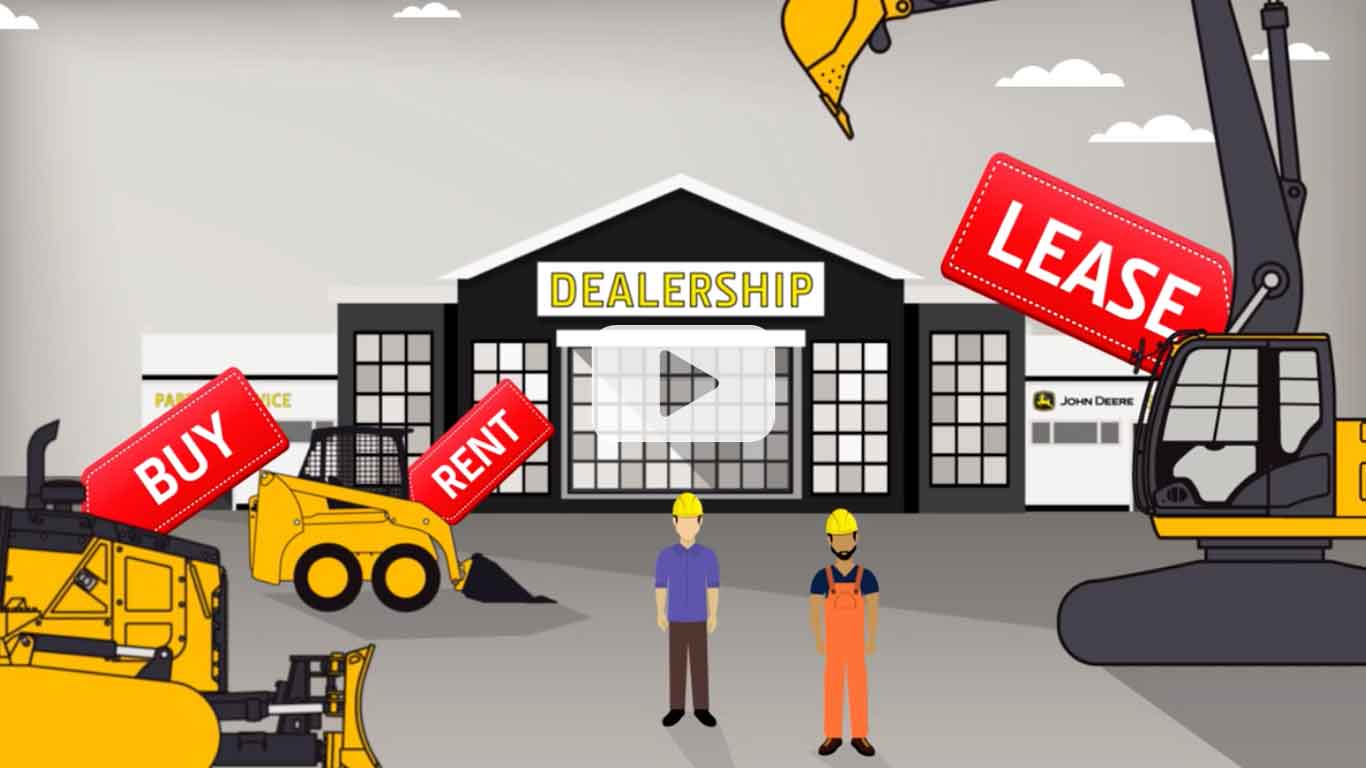

Should you Lease, Buy, or Rent Construction Equipment?

New equipment is a given in the world of construction. It can be critical to productivity, and therefore, profitability. But how you acquire machinery can make a big impact on your bottom line.
Buying, leasing, and renting all have their pros and cons. Deciding which avenue to go down when adding equipment to your fleet depends on your cash flow, workflow, and future business needs. Get the lowdown on each option to decide which is best for your operation.

BUYING
If you're planning on pushing your equipment to the max and don't plan on letting up, buying is probably your best option.
Owning equipment can also have a positive impact on your tax statement, since you can deduct depreciation, interest, insurance, and repairs.
However, the down payments typically required with buying equipment can take money away from other business ventures. Plus, you'll be responsible for all equipment storage and maintenance costs.

LEASING
Leasing is a good way to get the latest equipment technology while holding on to the capital you might need to grow your business. Since you can lease at a flat rate throughout your term, costs remain manageable and predictable, which could improve your bonding capacity. And with a smaller down payment, you might be able to add more equipment or more employees to your operation.
Lease payments can also be deducted as an operating expense, which will positively impact your tax statement. And although lease interest rates are generally higher than purchase rates, the predictable costs will allow you to maintain a pretty clear budget. Plus, you usually have the option to buy when your lease period is up.

RENTING
With renting, you have instant access to the latest and greatest equipment - and you only pay for it when you actually use it. This can be a big draw for smaller businesses that don't have the budget to maintain a constant fleet, since you can return machinery whenever business slows or a project gets put on hold. Of course, picking up and returning equipment more frequently can also lead to unproductive hours, extra miles on your vehicle, and more hassle overall.
However, a little extra hassle may be worth it to your business, since you're typically not responsible for maintenance costs when you rent. And you can still deduct rental costs as an operating expense come tax time.
Before you decide which acquisition option is right for you, take a look at your current financial situation as well as the long- and short-term goals of your company. Also, consult your equipment dealer and your tax advisor for advice. There's a good chance that a mixture of the three options could be your best bet.